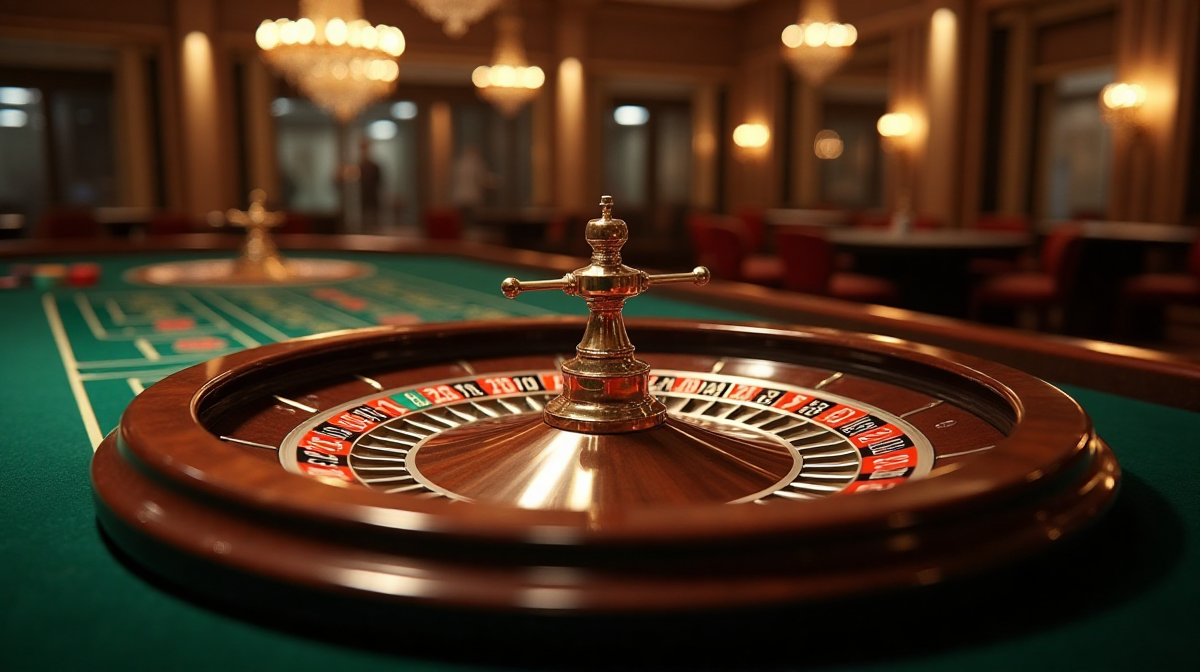Roulette Watch: Is It Really Possible?
The pursuit of consistently winning at roulette has captivated gamblers for centuries. The allure of a system, a device, or even a “roulette watch” that can predict the outcome is powerful. This article delves into the world of roulette prediction, exploring the technologies claimed to assist, the physics behind the game, and the realistic possibilities of gaining an edge. We'll also touch on the world of online betting, specifically mentioning betano bet and how to navigate platforms like it.
The Allure of Predicting Roulette: A Centuries-Old Quest
From the earliest days of roulette, players have sought patterns and methods to beat the odds. The idea that the seemingly random spin of a wheel could be deciphered and predicted has fueled countless attempts at system development. This desire is understandable; a successful system promises not just wins, but control over a game fundamentally based on chance.
Defining a “Roulette Watch” – What Are We Talking About?
A “roulette watch” broadly refers to any device, mechanical or electronic, claimed to predict the winning number or section on a roulette wheel. These range from historical mechanical computers to modern smartphone apps claiming to utilize sophisticated algorithms. The core promise is the same: to transcend the game's inherent randomness and provide a predictive advantage. Increasingly, people are looking for ways to enhance their betting experience, understanding how to place a bet on betano and similar platforms, but often are also drawn to the promise of predictive tools.
Brief Overview of the Technologies Claimed to Assist
Throughout history, various technologies have been proposed or attempted. Early efforts involved complex mechanical calculations. More recently, laser-based tracking systems, computer vision, and advanced algorithms are marketed as potential solutions. The underlying principle remains the same: to analyze the wheel’s behavior and predict where the ball will land.

The Physics of Roulette & Why Prediction is Difficult
Understanding Roulette Wheel Mechanics: The Physics Involved
Roulette isn't purely random. It's governed by physics. Several factors play a role in determining the outcome of each spin.
Wheel Bias: Historical Significance & Modern Relevance
Historically, imperfections in roulette wheels – slight biases in the manufacturing or wear – could be exploited. However, modern casinos regularly inspect and maintain their wheels, minimizing this effect. While wheel bias still exists in theory, it’s exceedingly rare to find a wheel with a significant exploitable bias.
Ball Trajectory: Factors Affecting the Roll
The ball’s trajectory is influenced by the wheel’s speed, the ball’s speed, the deceleration rate of both, and the point of release. These variables, combined with the wheel's imperfections, create a complex system.
Atmospheric Conditions & Their Impact
Even subtle atmospheric conditions, like air currents within the casino, can slightly influence the ball's path. These factors make precise prediction incredibly challenging.
The Chaos Theory & Its Role in Roulette Randomness
Chaos theory suggests that even in deterministic systems, small initial differences can lead to dramatically different outcomes. Roulette, with its multitude of interacting variables, is a prime example of a chaotic system. This means that even knowing the initial conditions with extreme precision wouldn't guarantee accurate long-term prediction.
House Edge & Why Consistent Winning Is Statistically Unlikely
The casino's house edge – the mathematical advantage the casino has over the player – ensures that, over the long run, the casino will always win. This edge is built into the layout of the wheel and the payout structure. Even with a predictive device, overcoming the house edge consistently is statistically improbable. For those looking to participate, understanding how do i enter a bet code on betano? is important, but it doesn’t negate the statistical realities.

Types of “Roulette Watches” & Technologies Claimed to Predict
Mechanical Roulette Prediction Devices
Early Mechanical Computers & Their Attempts
In the 19th and early 20th centuries, inventors attempted to create mechanical computers to analyze roulette wheel data and predict the outcome. These devices were often bulky, unreliable, and ultimately unsuccessful.
Modern “Precision” Mechanical Devices - How They Claim to Work
Some modern devices claim to use precise timing mechanisms and sensors to measure the wheel’s and ball’s speed, then calculate the predicted landing point. However, their accuracy is often questionable, and they are easily detected by casino security.
Electronic Devices & Software – Sensors & Algorithms
Laser-Based Ball Tracking Systems
These systems use lasers to track the ball’s movement and calculate its trajectory. While they can provide accurate tracking data, predicting the final landing point remains extremely difficult due to the chaotic nature of the game.
Computer Vision & Image Analysis Techniques
These systems utilize cameras and image processing algorithms to analyze the wheel’s spin and the ball’s trajectory. They face similar challenges as laser-based systems.
Wearable Devices with Prediction Apps
Numerous smartphone apps claim to predict roulette outcomes. These apps often rely on flawed algorithms or simple statistical analysis and are largely ineffective. The appeal of these often distracts from legitimate online platforms like those offering betano bet.
Visual Ballistics & its Application in Prediction
The Concept of Visual Ballistics Explained
Visual ballistics involves mentally tracking the wheel’s and ball’s movements to estimate the landing point. This requires exceptional skill, concentration, and practice.
The Skill Required & its Limitations
While skilled visual ballistics players can occasionally predict the outcome, it’s a difficult skill to master, and even the best players aren’t consistently successful.
Analyzing the Effectiveness of Roulette Watches
Examining the Claims vs. Reality – Case Studies & Testing
Numerous tests and case studies have debunked the claims of most “roulette watches” and prediction devices. While some may show short-term success, they consistently fail to deliver a long-term, sustainable advantage.
The Role of Skill vs. Luck – Separating Fact from Fiction
Skill, in the form of visual ballistics, can play a minor role, but luck remains the dominant factor in roulette. No device can eliminate the inherent randomness of the game.
Common Scams & Misleading Marketing Tactics
Identifying Red Flags & Avoiding Fraudulent Products
Be wary of products promising guaranteed wins or boasting unrealistic accuracy rates. Look for independent reviews and avoid relying solely on the manufacturer’s claims.
The Illusion of Pattern Recognition
Humans are naturally inclined to seek patterns, even in random data. This can lead to the illusion that a system or device is working when it’s simply a matter of chance.
Legal Implications of Using Prediction Devices
Casino Security Measures & Detection Techniques
Casinos employ sophisticated security measures to detect and prevent the use of prediction devices. These include surveillance cameras, signal jammers, and trained personnel.
Consequences of Detection: Banning & Legal Penalties
Using a prediction device in a casino can result in being banned from the premises and may even lead to legal penalties.
The Future of Roulette Prediction Technology
Advances in Artificial Intelligence & Machine Learning
Potential Applications of AI in Roulette Analysis
AI and machine learning algorithms could potentially analyze vast amounts of roulette data to identify subtle patterns or biases. However, the chaotic nature of the game presents a significant challenge.
Challenges in Developing Truly Predictive AI
Developing an AI capable of consistently predicting roulette outcomes would require overcoming the inherent randomness of the game and the casino’s countermeasures.
Quantum Computing & Its Theoretical Impact
Quantum computing, with its ability to process information in fundamentally new ways, could theoretically offer a breakthrough in roulette prediction. However, this technology is still in its early stages of development.
The Ongoing Arms Race Between Players & Casinos
The pursuit of roulette prediction is an ongoing arms race between players attempting to exploit the game and casinos implementing countermeasures.
Ethical Considerations: The Fairness of Prediction
If a truly reliable roulette prediction device were developed, it would raise ethical questions about the fairness of the game and the casino’s business model.
Conclusion
Recap: Is a Reliable Roulette Watch Possible with Current Technology?
Based on current technology, a reliable “roulette watch” capable of consistently predicting the outcome of a roulette spin is not possible. While advancements in technology continue, the inherent randomness of the game and the countermeasures employed by casinos make it exceedingly difficult to gain a sustainable advantage. Even when participating on platforms offering games like roulette sites or betano bet, the odds remain firmly in the house’s favour.
Responsible Gambling & Managing Expectations
It’s crucial to approach roulette as a game of chance and gamble responsibly. Set a budget, stick to it, and never chase your losses.
Final Thoughts: The Enduring Appeal of Roulette & the Illusion of Control
The enduring appeal of roulette lies in its simplicity, excitement, and the illusion of control. While the dream of predicting the outcome may never be fully realized, the thrill of the spin and the hope of a lucky win will continue to captivate gamblers for generations to come.

